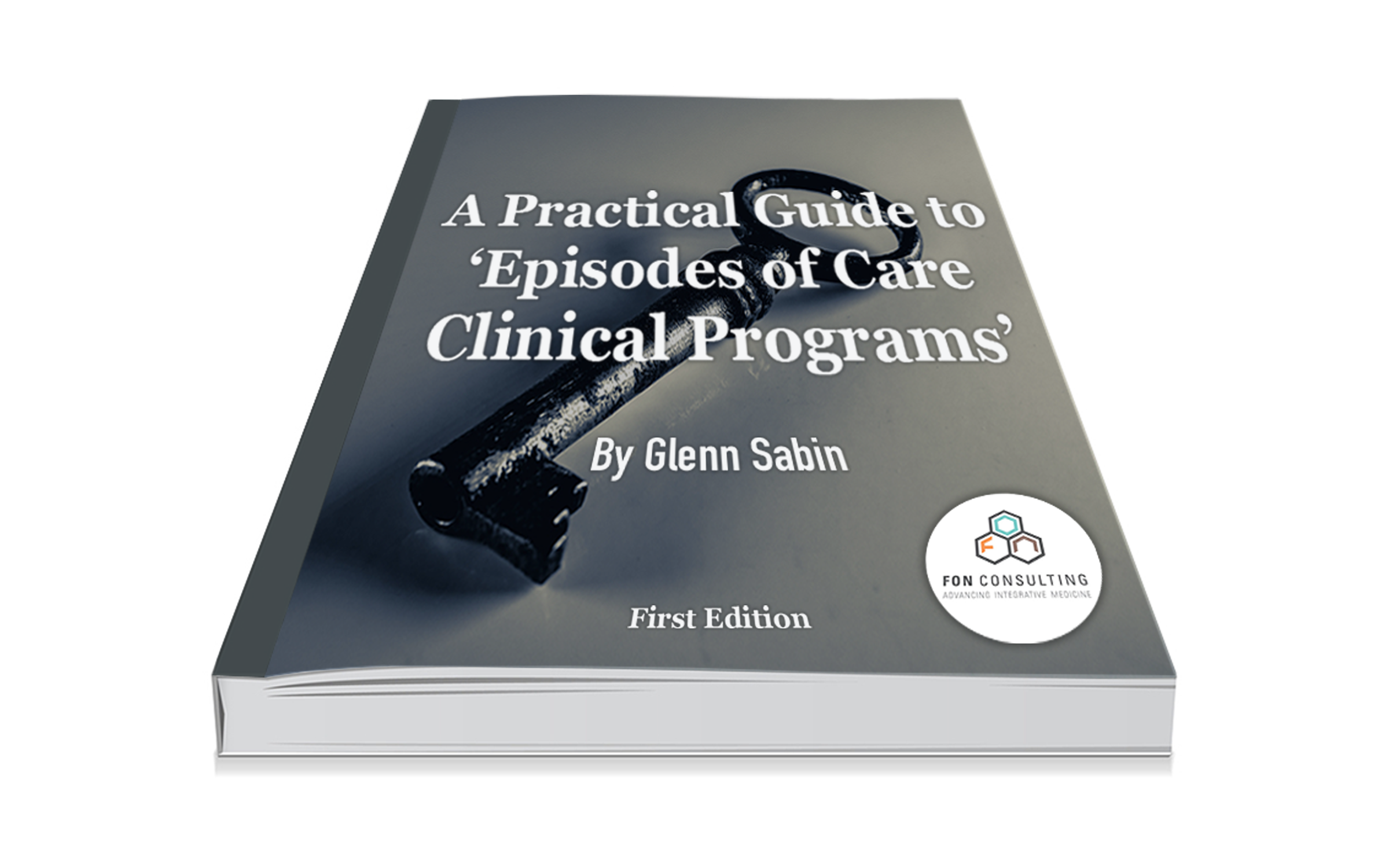The Best Clinic and Business Model for Integrative Medicine
By Glenn Sabin

“If you’ve seen one integrative medicine center… you’ve seen one integrative medicine center.”
~Anon
I am often asked what’s the best clinic or business model to deliver integrative medicine. My standard reply is the quote above; it pretty much says it all. Frankly, when deciding the most appropriate, sustainable model for your specific organization, there are many important considerations.
Recently, I led a workshop at the Society for Integrative Oncology (SIO) titled A Practical Look at Current Clinic and Business Models for Academic and Private Integrative Oncology Centers, and What the Future Portends. Panelists included representatives from an Ottawa based non-profit clinic, a major U.S. academic cancer center, and two private community centers: a direct pay (insurance not accepted) integrative medicine center seeing a lot of cancer patients and a community medical oncology center based on an insurance model.
All of the programs presented at SIO featured vastly different clinic and business models which is rather remarkable considering the even greater range of potential modeling options available within the broader integrative health field.
Growing Number of MD/DO Specialties Entering the ‘Movement’
Integrative medicine today is practiced by primary care and family medicine MDs and DOs, as well as internists, psychiatrists, psychologists, pediatricians, gastroenterologist, radiologists, oncologists, pain specialists and more.
For example, I am currently advising a large orthopedic surgery group aspiring to launch a musculoskeletal health wellness program. It will be the first of its type in the U.S. based on its proposed size and scope. It seems that one of a kind integrative medicine programs are launching weekly.
Strategic Growth Consultation
Scale Your Practice with Expert Consulting
More Non-MD/DO Practitioners Leading Integrative Medicine Programs
Non-MD/DO integrative medicine practitioners and service providers comprise a wide range of disciplines, including naturopaths (arguably the original providers of integrative medicine), nurse practitioners, chiropractors, Chinese medicine doctors, massage therapists and acupuncturists.
Interestingly, I see more and more practitioners adding MD/DO physicians to their provider mix without abandoning their own medical director leadership roles.
Integrative Medicine Practice Settings
Integrative medicine is delivered within private settings that include both solo and multi-provider practices as well as non-profit academic medical centers, community hospitals and hospital systems.
Clinic models inform business models and vice versa. To date, we have no established and endorsed “best practices” for specific types of integrative medicine programs, i.e., academic medical centers or solo practices. Though I often hear this would be most helpful for advancing the field, based on my professional experience, there’s no one-size-fits-all best approach for delivering integrative medicine.
Whether an existing or proposed integrative health program is structured as a non-profit or for-profit enterprise, it should be customized by methodically and thoroughly assessing the following core areas:
Community Needs
- Who are you serving and what are their prevalent health issues and needs?
- Once identified, how is this being addressed?
- Will your services fill a void?
Ethos of Organization
- What drives your organization? What are its core characteristics (spiritual and cultural) vis-à-vis the community with respect to its beliefs and aspirations?
- Do your organization vision and mission statements align with your integrative health program goals?
Administration Priorities
- What is your enterprise’s current fiscal health and what are management’s core priorities?
- How do these stated priorities align with an integrative health program?
- What resources (fiscal, human) will be committed to ensure long term success?
- Is it important for your organization to differentiate its “brand” through the provision of wellness, prevention and integrative health clinical services and educational programming?
Payer Mix and Demographics Served
- What is the breakdown between Medicare/Medicaid, commercial payers and direct-pay patients?
- Does your organization serve a rural, suburban or urban market?
- What is the average household income for those served?
Philanthropic Support Network
- If you’re a non-profit or otherwise set up to receive gifts and grants, what is the complexion of your current benefactor mix in terms of gift size and usage restrictions?
- Is there existing interest from philanthropists, angels or grant-making organizations to support an integrative health program?
Internal/External Network of Champions
- If part of an institution, are there service line directors, medical directors, physicians or nurse champions proactively leading the inquiry around integrative health?
- Are there community or religious leaders inside or outside your organization who support integrative medicine clinical services or educational programming?
Competitive Set
- Who are your biggest competitors and how do their relative strengths, weaknesses, opportunities and threats (SWOT) compare to those of your organization?
- Whether you’re a private or public non-profit center, how important is it to increase your market share?
- Do you see opportunity for leveraging an integrative medicine or health program to more directly and effectively engage existing and prospective patients while elevating your reputation and standing in the community?
Though I’ve given you lots to think about, I haven’t yet been super helpful in providing answers to what model may be best for you. I’d need to first consider the myriad details, nuances and idiosyncrasies unique to your specific situation.
For instance, if you’re a rural hospital serving low income patients and have considerable financial constraints and no clear way to monetize integrative services outside marginally larger reimbursements with ACO accreditation, I’d most likely advocate developing a meaningful experiential and educational, content-based program but little to no actual clinical services.
If you are a small private clinic or center operating within an insurance model providing 90 minute new patient consults and getting hammered with reimbursement cuts, then I’d want to discuss a hybrid model combining insurance with program fees or a (monthly/annual) retainer.
Let’s say your medical practice or center is profitable and growing and you still enjoy decent core service line margins. I’d want to consider what that will look like after an integrative program is built into your existing health delivery model.
If you are a private oncology center providing chemotherapy, radiation therapy and surgery, my focus and suggestions will be very different than if you are a medical oncology clinic providing only chemotherapy.
There are endless clinic and business models to consider, and, potentially, more than one may be appropriate for your organization’s unique ethos, goals and environment. Careful consideration, mapping and modeling will go a long way to figuring it out.
Looking for further actionable input to create an integrative medicine program specific to your unique set of goals, challenges and opportunities? Contact FON today to schedule a complimentary, no-obligation 30-minute consultation to discuss your needs.
Discover Membership and Hybrid Models
Transform Patient Care and Your Bottom Line with Membership and Hybrid Models

Read Glenn’s story.





















